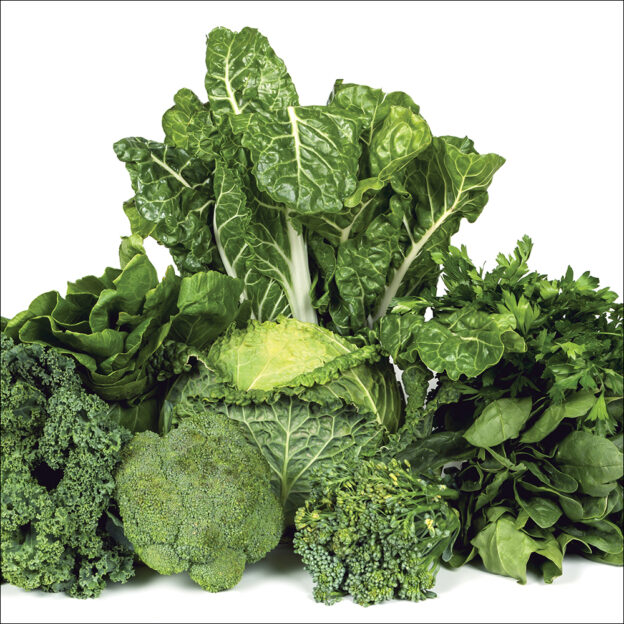Table of Contents
By Phoebe Lapine

Small intestinal bacterial overgrowth (SIBO) is exactly what it sounds like: a type of dysbiosis—an imbalance of the trillions of bacteria that take up residence in your gut. However, the issue is not necessarily the ratio between beneficial and pathogenic bacteria (though that could be part of it too). Rather, the main problem is location, not type.
Small Intestine Versus Large Intestine
Although bacteria colonize all sections of the alimentary canal, most are found in the large intestine (also known as the colon). There, bacteria assist in the final step of the digestive labyrinth and prepare waste matter for elimination.
The small intestine, on the other hand, is where your food intermingles with digestive juices and nutrients are absorbed into the bloodstream. It’s not a place where bacteria have much of a role. In fact, as is the case with SIBO, their presence can cause a lot of harm.
Since bacteria are living organisms with their own cravings, high numbers in your small intestine means there are other mouths at the table competing for your dinner. When there’s not enough nourishment to be had, they turn to the next best thing: your intestinal lining.
The result is an increased permeability, also known as leaky gut syndrome, whereby larger food particles (instead of just essential nutrients) seep into the bloodstream. The downwind effect is often systemic inflammation, food sensitivities, and autoimmunity.
Although you can have leaky gut, food intolerances, and an autoimmune disease without SIBO, it is not unusual for these conditions to be a package deal.
Recognize SIBO
Unwanted bacteria can also disrupt your quality of life in a variety of other ways. As they eat your dinner, these critters release gas. Your small intestine was not designed to withstand the buildup, and it tends to get trapped, or released through burping or flatulence. You can also experience nausea from slowed stomach emptying and classic hallmarks of irritable bowel syndrome (IBS), such as bloating, constipation, or diarrhea.
Even more insidious and sneaky are the changes that can occur to your weight and mood. Depending on what type of bacteria is overgrowing, you might experience chronic weight loss or resistant weight gain—no matter how much or little you eat, pounds seem to fall off or stick stubbornly.
Since ninety percent of your serotonin is made in the gut, a damaged intestinal tract can also mean descending into an inexplicable fog of depression or feeling as if your life is being run by a humming undercurrent of anxiety. So, what happens when all these inexplicable symptoms add up? Usually, someone will be given a blanket diagnosis of IBS.
Thanks to the last decade of new research, experts in the field now estimate that over sixty percent of all IBS cases are being caused by SIBO. If this is true, twenty-five million people are finally being given a diagnosis they can start managing properly. For those suffering from these mysterious digestive symptoms, SIBO can be a beacon of hope—an answer that has escaped them during years of bouncing between doctors, and one that finally has a path to treatment.
Treating SIBO
With SIBO, the struggle is real. The roadmap is far from linear and streamlined.
There are three main clinical approaches that most doctors use for clearing unwanted critters: antibiotics, antimicrobial herbs, and the elemental diet.
That said, there is also an incredible array of alternative strategies—visceral manipulation, IBS-focused hypnosis, and targeted probiotic therapies—that can put you in the driver’s seat of your own healing and help support your microbiome as a whole.
Probiotic Protocol
Probiotics get a bad rap in the SIBO community. The common assumption is that adding more bacteria to the mix wouldn’t be helpful for someone with SIBO. Bad motility might mean those bugs hang out too long in the small intestine and potentially join the ranks. The reality is a lot more nuanced.
Manage Gas and Bloating with Herbal Remedies
Peppermint Oil. Much of the abdominal pain caused by SIBO is due to your muscles’ contracting against trapped gas. Peppermint oil has been studied extensively, particularly for relieving abdominal pain in IBS patients. It acts as a smooth muscle relaxant, plus, it has the added benefit of being antibacterial (a bonus for hydrogen dominant SIBO).
Peppermint can be brewed as a strong tea, taken as a tincture, or rubbed directly on the abdomen if using an essential oil. The most common vehicle is enteric-coated peppermint oil pills, which are best for reaching pain in the mid-abdomen. Of note, peppermint is not ideal for those with acid reflux issues.
Ginger. One of the best fighters of nausea is good old-fashioned ginger. You can make yourself a fresh tea or seek it out in capsule, tincture, or chewable. Ginger is also a natural prokinetic so it can help stimulate your motility.
Full-Spectrum Hemp Oil. Research into CBD oil has been on the rise over the past few years. We’re still learning how the mechanisms work in the body, but it’s clear that high-quality hemp products can be a huge asset in your medicine cabinet for managing IBS issues, activating the immune system, and reducing inflammation in the gut.
“You can think of CBD as an adaptogen,” says Chloe Weber, a Chinese herbalist and founder of Radical Roots. “If you need more energy, it gives you more energy. If you need more sleep, it’ll help you sleep. It brings the body and the brain into homeostasis at the most basic level.”
Weber recommends finding oils that contain the whole plant rather than a CBD isolate. Hemp is very mineral-rich, and research indicates that the whole (which includes small non-psychoactive doses of THC) is greater than the parts. Full-spectrum hemp also includes CBG—one of the cannabinoids that’s been shown in research to be most effective for IBS, repairing tight junctions, and improving leaky gut.
Some of these positive effects on the gut are thanks to how these cannabinoids affect the brain, regulating vagal tone and improving anxiety. For best use, place the oil under the tongue and hold for thirty seconds before swallowing. Full-spectrum hemp oil isn’t a fast-acting medicine for a flare-up; rather, it’s something you can take every day to regulate and reduce your likelihood of experiencing symptoms.
Atrantil. Although it hasn’t been studied specifically for SIBO, this herbal therapy was designed to limit the effects of methane gas in the gut. In one randomized trial, ninety-one percent of IBS patients reported relief from bloating and seventy-seven percent had improved constipation. Many methane SIBO or IBS-C patients keep Atrantil in their medicine cabinet to relieve symptoms.
One of the general misconceptions about probiotics is that these bottled bugs join your existing bacteria and take up permanent residence in the gut. Rather, probiotic bacteria are transient visitors that allow the immune system to fine-tune its response to more dangerous microbes. (You cannot have a happy gut without a calm, responsible immune system.)
Moreover, different probiotic strains have specific actions as they pass through your system. Some are antimicrobial agents. Others can improve gut transit time and stimulate the migrating motor complex (MMC)—the small intestine’s “dishwasher” responsible for clearing undigested food and unwanted critters through the canal after each meal. (Because of this role, the MMC only kicks in during a fasting state of ninety minutes or longer.)
When it comes to SIBO, the key is to drill down and match the appropriate bacterial strains with the desired action.
SIBO-Specific Probiotic Strains
“If we’re talking about reducing the numbers of excessive microbes, we’re after probiotic agents that have demonstrated antimicrobial activity against the microbes that are most commonly present in SIBO,” says Jason Hawrelak, PhD, a highly sought-after probiotic researcher, educator, and clinician.
One particular strain Hawrelak uses in his practice is the DSM17938 strain of Lactobacillus reuteri, which was recently studied to see whether it could prevent SIBO development in patients taking proton pump inhibitors (PPIs).
Of note, use of PPIs puts you at a significant risk of SIBO, according to a 2017 meta-analysis published in the Journal of Gastroenterology. In the study, fifty-six percent of the subjects taking PPIs developed SIBO, whereas only six percent of those taking PPIs along with this particular strain of Lactobacillus reuteri developed SIBO.
What makes this probiotic strain so effective is its capacity to produce an antimicrobial compound that’s incredibly effective against E coli, Klebsiella, and other bugs commonly found in SIBO.
Most commercial probiotics on the market use combinations of Lactobacillus and Bifidobacterium, however that does not necessarily mean they will contain the DSM17938 strain. Since bacteria present in the small intestine often include lacto-bifido species, some practitioners avoid using generic blends during treatment and instead focus on soil-based probiotics that tend to be more user-friendly.
Soil-Based Probiotics
Spore-forming microorganisms that populate our soil used to have a much wider presence in our digestive systems. Since our food supply (and lives) have become increasingly sanitized and devoid of natural probiotic power, supplementing with these organisms becomes an even more necessary pursuit.
Soil-based probiotics are incredibly sturdy and able to survive a trip through your stomach acid. They are also heat resistant, not requiring refrigeration. This is particularly convenient for travel, especially helping prevent food poisoning on the road.
Starting your Digestive Engines
One of the biggest underlying problems that contributes to SIBO is a slowed MMC. Luckily, there are ways to stimulate the MMC to prevent another accumulation of bacteria—medications and natural ingredients known as prokinetics.
Natural options include high concentrations of ginger (1,000 mg). Ghee and coconut oil are healthy fats that grease the wheels of your digestive tract.
Use a Stool to Help Your Stool
If you’re prone to constipation, simply changing the shape of your body while you’re on the toilet can make a world of difference. We’d all be better off pooping as we did in the backcountry, squatting over an open hole in the ground with no stacks of magazines or distracting phones.
Luckily, this position can be recreated while still using your modern toilet. All you need is a set of small stools or a platform to raise your knees. This opens the colon and gets your intestines into the proper position for evacuation. Although my Squatty Potty looks like something that belongs in a nursing home, I’ve become addicted to it and can never go back.
Prebiotics: Fibers That Don’t Need to Be Feared
One of the resounding pieces of wisdom on gut health that I have come across is that probiotics can only do so much if your diet isn’t laying the necessary groundwork. A helpful analogy is likening probiotics to expensive fertilizer. It’s not going to do your garden any good if you don’t remember to water the plants.
Prebiotics are the water in this scenario and thought to be the most effective food for your gut garden. These selectively fermented fibers encourage the growth of beneficial bacteria (the flowers, if you will) in your large intestine, which can then suppress the expansion of more inflammatory species (unwanted weeds).
PHGG: Low-Risk, High-Reward Supplement
The prebiotic that seems to have beneficial effects for SIBO sufferers is partially hydrolyzed guar gum (PHGG). Hawrelak performed a systematic review of all the studies that looked at the use of PHGG in patients with IBS. The analysis showed an overall reduction in symptoms, including bloating, diarrhea, and constipation. It was clear that the prebiotic fiber itself dramatically improved quality of life by shifting the underlying ecosystem of the gut.
For SIBO patients in particular, a compelling study was done that compared the efficacy of rifaximin in eradicating SIBO when PHGG was added to the antibiotic dose. Although the rifaximin alone cleared the overgrowth in sixty-two percent of one group, it was eighty-seven percent more effective in the group taking both rifaximin and PHGG.
One of the reasons PHGG works so well for SIBO sufferers is that it is a food source primarily for butyrate-producing bacteria.
Specifically, butyrate can inhibit the growth of the main organism that’s responsible for methane overproduction. More butyrate-producing bacteria can also improve hypersensitivity in the colon, paving the way for a higher tolerance of all gas-producing prebiotic foods.
In his practice, Hawrelak has seen PHGG be a successful addition to treatment for both hydrogen-and methane-dominant SIBO. Although a small subset of people might not react well to the prebiotic fiber, he’s found it tolerated by most of his SIBO patients.
For those who are wary of kill protocols that blast the bugs away and prefer to address dysbiosis on a more macro level, trying prebiotics is an easy first step. Soluble fiber supplements are also a useful follow-up to treatment to heal leaky gut and reduce inflammation, especially if your gut isn’t yet strong enough to lean on a heavily plant-based diet to accomplish the same goals.
Dirt for Greater Gut Health
Soil microbes have been shown to enhance mood, increase focus, improve cognition, and reduce anxiety. You can increase your exposure through light gardening or playing in the dirt and not being too vigilant about washing your hands.
You don’t have to live in a rural area or go off the grid to get that benefit; simply buy your vegetables at the farmers’ market and don’t power-wash them at home. “In one teaspoon of soil there are as many organisms as there are people on the planet,” says Maya Shetreat, MD, a pediatric neurologist, and author of The Dirt Cure. “You don’t have to eat mouthfuls, just a few traces will do.”
Stimulate Vagus Nerve for Better Digestion
In addition to targeted supplements, seeing a visceral manipulation specialist may offer relief. Simply stated, visceral manipulation is moving the omentum—the fat layer that covers our vital digestive organs.
A practitioner who specializes in this type of body work will use their hands very gently to move what is stuck. This type of bodywork can also help realign the vagus nerve, which regulates the parasympathetic nervous system. Improving vagus nerve function helps with various digestive symptoms, such as bloating, burping, stomachaches, and constipation, not to mention neurologic symptoms.
—
Phoebe Lapine is the voice behind the award-winning blog Feed Me Phoebe and the author of The Wellness Project, SIBO Made Simple, and the upcoming Carbivore (2024). Phoebe’s work has appeared in Food & Wine, Marie Claire, Self, and Cosmopolitan, among many other publications. She lives in Brooklyn, New York, with her husband and beagle.
Well Being Journal adapted the above excerpt from SIBO Made Simple by Phoebe Lapine © 2021 by Phoebe Lapine. Used with permission by Hachette Go.
Read more about SIBO in the May/June 2018 issue of Well Being Journal.





